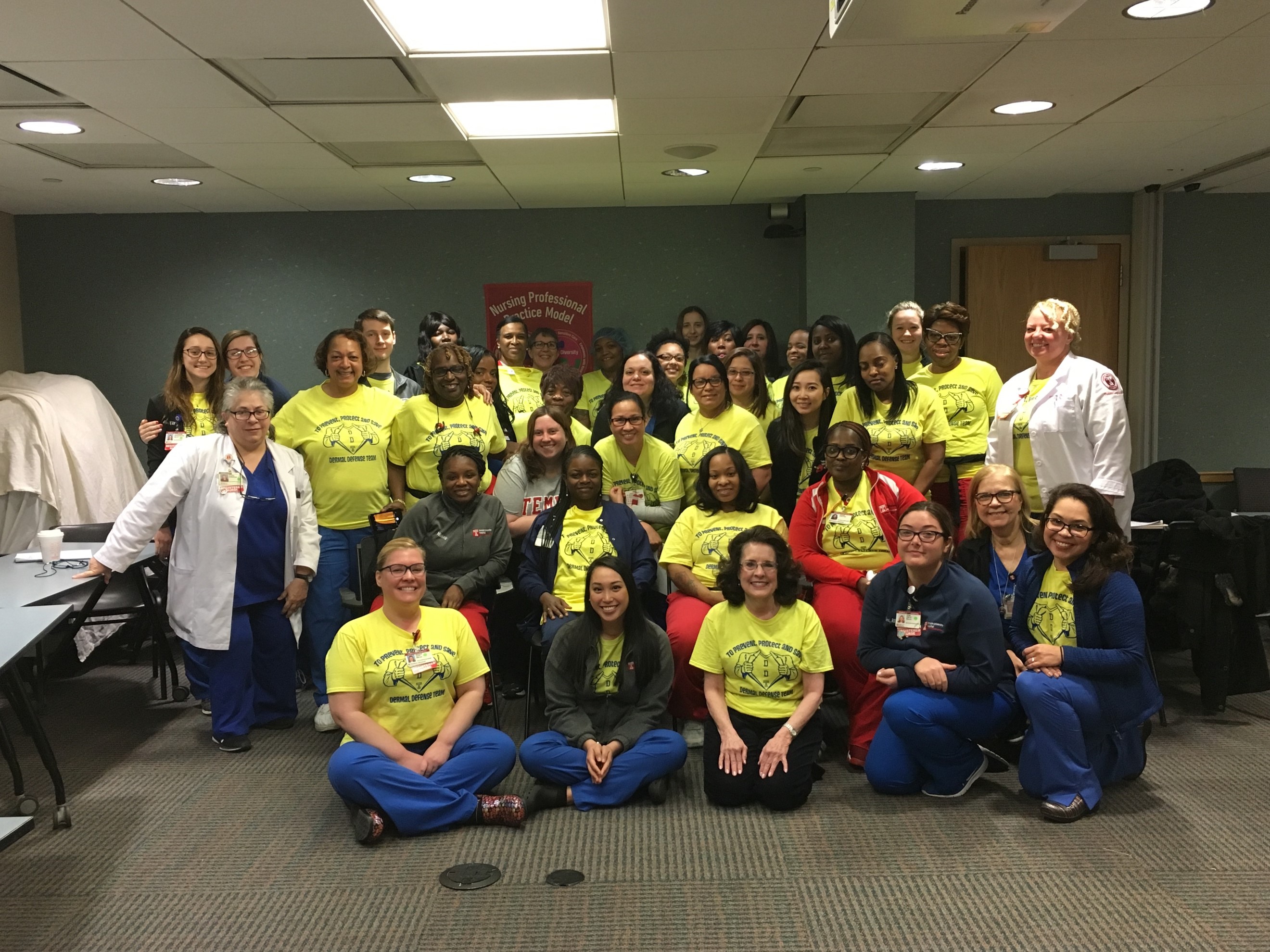
As a Level 1 trauma center, the Dermal Defense Team at Temple University Hospital has changed the conversation from one where skin was one of the later priorities in patient care to staff starting with skin as soon as someone is admitted. Their goal has been zero pressure injury development, requiring an emphasis on skin care and prevention protocols.
For Meghan Dunleavy, a member of the Dermal Defense Team, moving to a skin-first culture was crucial not only for reducing skin breakdowns, but also for demonstrating patient care.
“Your skin is your first line of protection, and we are charged to protect it. Caring for skin helps patients feel you care about them, and the small changes it takes to focus on skin don’t take much time, but they have a big impact,” said Meghan Dunleavy, BSN, RN, a nurse in the Surgical Intensive Care Unit (SICU) at Temple University Hospital. “Our team is focused on all aspects of the skin, with all therapies coming together to help decrease length of stay and injury and meet our skin care goals.”
The Dermal Defense Team, which today includes more than 58 skin champions across multiple departments was formally organized in 2014 with just 10 members initially. In 2016, it gained greater momentum as Temple University Hospital sought Magnet® status and the Dermal Defense Team expanded its efforts with skin champions from every unit joining the team, making it easier to collect the data necessary to show skin breakdown prevention protocols work and garner additional administrative support. Since then, a pressure injury competency has been required for all staff yearly and the team has implemented the “Back Off Program,” to reduce the amount of time patients spend on their backs, ultimately reducing skin breakdowns.
With leadership support, the team united around the rallying cry “To Prevent, Protect and Save,” as they met their goal of zero hospital-acquired Stage 3 and Stage 4 pressure injuries. To do so, they focused on both education and metrics – incorporating skin safety into new hire orientation, continuous education on pressure injury and skin breakdown prevention for all nurses and monthly team meetings to review goal progress towards skin safety metrics. Crucial to the team’s education focus was its interdisciplinary approach engaging health care team members across many disciplines from physicians to EEG technicians, hyperbaric oxygen therapists and OR nurses.
These efforts earned the Dermal Defense Team the 2019 3M Award for Excellence in Skin Safety, presented by 3M and the WOCN® Society. Learn more about the five ways the team reduced pressure injury rates, as well as the award, in HealthLeaders.

